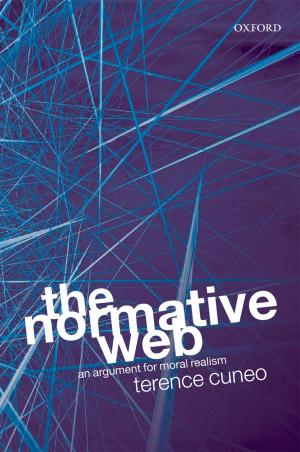Fear of Knowledge : Against Relativism and Constructivism
Against Relativism and Constructivism
Nonfiction, Religion & Spirituality, Philosophy, Social & Cultural Studies, Political Science, Social Science| Author: | Paul Boghossian | ISBN: | 9780191622755 |
| Publisher: | Clarendon Press | Publication: | February 23, 2006 |
| Imprint: | OUP Oxford | Language: | English |
| Author: | Paul Boghossian |
| ISBN: | 9780191622755 |
| Publisher: | Clarendon Press |
| Publication: | February 23, 2006 |
| Imprint: | OUP Oxford |
| Language: | English |
The academic world has been plagued in recent years by scepticism about truth and knowledge. Paul Boghossian, in his long-awaited first book, sweeps away relativist claims that there is no such thing as objective truth or knowledge, but only truth or knowledge from a particular perspective. He demonstrates clearly that such claims don't even make sense. Boghossian focuses on three different ways of reading the claim that knowledge is socially constructed - one as a thesis about truth and two about justification. And he rejects all three. The intuitive, common-sense view is that there is a way things are that is independent of human opinion, and that we are capable of arriving at belief about how things are that is objectively reasonable, binding on anyone capable of appreciating the relevant evidence regardless of their social or culturalperspective. Difficult as these notions may be, it is a mistake to think that recent philosophy has uncovered powerful reasons for rejecting them. This short, lucid, witty book shows that philosophy provides rock-solid support for common sense against the relativists; it will prove provocative reading throughout the discipline and beyond.
The academic world has been plagued in recent years by scepticism about truth and knowledge. Paul Boghossian, in his long-awaited first book, sweeps away relativist claims that there is no such thing as objective truth or knowledge, but only truth or knowledge from a particular perspective. He demonstrates clearly that such claims don't even make sense. Boghossian focuses on three different ways of reading the claim that knowledge is socially constructed - one as a thesis about truth and two about justification. And he rejects all three. The intuitive, common-sense view is that there is a way things are that is independent of human opinion, and that we are capable of arriving at belief about how things are that is objectively reasonable, binding on anyone capable of appreciating the relevant evidence regardless of their social or culturalperspective. Difficult as these notions may be, it is a mistake to think that recent philosophy has uncovered powerful reasons for rejecting them. This short, lucid, witty book shows that philosophy provides rock-solid support for common sense against the relativists; it will prove provocative reading throughout the discipline and beyond.















